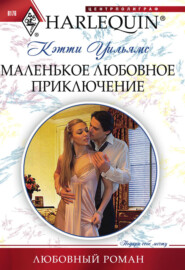По всем вопросам обращайтесь на: info@litportal.ru
(©) 2003-2024.
✖
Accidental Mistress
Автор
Год написания книги
2018
Настройки чтения
Размер шрифта
Высота строк
Поля
He walked over to the door and then paused.
‘I’m away for the next ten days,’ he said, ‘or else I would come and look in, and please don’t tell me that there’s no need or I’ll wring your neck.’
‘I don’t think I could cope with a sore neck and a fractured leg as well,’ she said, smiling. He had only been with her half an hour, if that, but seeing him standing there, with his hand on the doorknob, his body already half turned to leave, she felt a sudden, inexplicable pang which surprised and disoriented her.
She couldn’t possibly want him to stay, could she? she wondered. Wouldn’t that be altogether pathetic when he had come on what was, essentially, a courtesy visit? She should never have told him all that stuff about her parents. She seldom shared confidences, least of all with a stranger, and now she felt as though he was walking off with a little bit of her tucked away with him, and she didn’t like the feeling.
‘Goodbye, Lisa Freeman,’ he said. ‘You’re really rather a remarkable girl.’
‘Goodbye, Angus Hamilton,’ she replied, and when she tried to add a witty comment to that, as he had, nothing came out. She just continued smiling as he closed the door behind him, and then she pictured him striding along the hospital corridor, gathering admiring glances from all the nurses and female patients, walking purposefully towards his car, ready to be chauffeured back to his apartment or house or mansion or wherever it was he lived, because she hadn’t the faintest idea.
The mental scenario so overtook the thought of lying by a non-existent pool in the sunshine that, after a while, she shook herself and wondered whether perhaps she was missing the company of a man in her life rather more than she had consciously thought.
She had her little flat, a modern, one-bedroom place on a nicely kept estate a few miles from the nursery, so that travelling to and from work wasn’t too hazardous a prospect in her unreliable Mini. She had her friends, most of whom lived locally, and she carefully tended those relationships because in a world with no family friends became your only standby. She especially treasured them because friendships had been so hard to form as she’d roamed with her parents.
She hadn’t felt the absence of a boyfriend in her life. Why, then, had she been so stupidly invigorated by this man—someone whom she had never met in her life before, a man who lived in an orbit as far removed from hers as Mars was from the planet Earth?
She hadn’t thought that she was lonely, but—who knew?—perhaps she was.
Paul, her boss, had been trying for ages to arrange a blind date between her and his cousin, whose credentials seemed to be that he was a nice chap and supported the same football team as Paul did. Maybe, she thought, buzzing the nurse for some more painkillers because her leg, which had been feeling fine, was now throbbing madly, she would give him a go.
That settled in her mind, she eyed Angus Hamilton’s business card and then shoved it inside the drawer of the beside cabinet, where it was safely out of sight and safely out of mind.
Then she got down to the overdue business of ringing her closest friends, who sympathised with her bad luck and promised to visit with magazines and flowers and grapes—what else? She also phoned Paul, who soothed and clucked like a mother hen and told her that there was no need to rush back to work until she was ready, but could she tell him where that number for the delivery firm who were supposed to have delivered some shrubs that morning was, because they hadn’t and he intended to give them an earful?
Then she settled down, closed her eyes and spent the night dreaming of Angus Hamilton.
CHAPTER TWO
IT WAS two months before her leg was more or less back in working order. She was confined, by Paul, to doing what he called sitting duties, by which he meant tackling all the paperwork.
‘All very restful,’ he assured her, then proceeded to produce several box files of papers which were in a rampant state of disorder and left her to it.
But she was busy, and for that she was grateful. Only occasionally did she think about the missed holiday, wondering what it would have been like and promising herself that she would get there. Some time. Possibly even during the summer, although Paul didn’t like any of his staff, least of all her because he depended on her, to take their holidays during the busiest months of the year.
Rather too often for comfort, she thought about Angus. She must, she thought, have absorbed a lot of detail about him because he still hadn’t conveniently faded into a blurry image. She could still recall quite clearly everything about him, even little nuances which she must have unconsciously observed as he had sat there on the hospital chair talking to her, and stored away at the back of her mind.
She hadn’t told a soul about him. Not her friends, not Paul. He was a secret, her secret. Instinct told her that to talk about him would give even more substance to his memory.
He wasn’t about to reappear in her life, was he? What was the point of inviting curiosity about someone who had appeared and vanished as quickly as a dream?
She was so utterly convinced of this that when, nearly three months after she had last seen him and weeks after she had joyfully relegated her waking stick to the broom cupboard under the stairs of her flat, she found his letter lying on her doormat she was so shocked that she felt her breathing become heavy and her hands begin to perspire.
She knew who the letter was from even before she ripped open the envelope. The writing was firm, in black ink, and the postmark was London. Apart from Angus Hamilton, she knew no one else in London who would send her a letter.
The message was short and to the point. He was going on a cruise with a few friends and would she like to accompany them. ‘Of course,’ she read, sitting down on the small sofa in her lounge and tucking her feet underneath her, ‘you will not even think of refusing this invitation. Consider it an act of charity on your part to ease my guilty conscience over the accident.’ As a postscript, he had added, ‘I trust you are now back on both feet.’
Of course, she had no intention of accepting, never mind his guilty conscience. She kept the letter in her bag and pulled it out whenever there was no one around, and then told herself why she had no intention of accepting his invitation.
For a start, it just wasn’t her to rush off and do something like that. Spontaneity was all well and good, but she had spent so many years being swept along on the tide of her parents’ spontaneity, like a leaf constantly caught up in a wind storm, that she had come to realise that thinking things through was a much better alternative. Thinking things through gave coherence to the whole disordered business of living.
When her parents had died, she had been just seventeen and craving for what most girls her age would have hated: somewhere to call a home, somewhere safe where she could gaze out through the window and watch the seasons change and the years pass, without any plans for moving on. She never wanted impulsiveness to dictate her actions. Never, never, never. It was dangerous.
Then, reluctantly, she remembered his face. She remembered the pity she had glimpsed there when she had told him that she was used to standing on her own two feet. Pity at what he saw as a sad little thing.
Her parents had felt a little sorry for her as well. How could they have produced such a quiet, timid version of themselves, when they were so exuberant? They had never understood that spending a year or eighteen months in one place before moving on to a different place with different faces and different landmarks was something that she had found increasingly disorienting.
So she found herself accepting his invitation. It was as easy as that. Something stronger than common sense, some powerful emotional urge, tipped the scales, almost when she hadn’t been looking.
She called the number on the letter, spoke to an efficient-sounding woman who informed her that she was Mr Hamilton’s personal assistant, and threw caution to the winds before she could work out all the pros and cons and ifs and buts.
And here I am now, she thought three weeks later, paying the price for a few moments of recklessness. Feeling nervous and sick and apprehensive and knowing that I’m not going to enjoy a minute of this. It will be an ordeal.
The only saving grace was that there would be lots of people around on the liner so if she found the company of Angus and his friends too uncomfortable she could always lose herself in the crowd. No one would think her odd. Cruise liners were always full of solitary women.
She closed her eyes when the plane took off and for an instant she stopped thinking about what lay ahead of her and thought instead about the dynamics of something as heavy as this being able to travel in the air. She hoped that all the nuts and bolts were firmly screwed together and risked a quick look through the window, openmouthed at the sight of land fast disappearing beneath her, to be replaced by an infinity of sky and clouds.
She hadn’t felt nearly so nervous about Lanzarote. She wondered whether the captain would turn back and let her off at Heathrow if she asked nicely. Failing that, she could hop it back to England when they landed at Barbados and Angus Hamilton, with his far-fetched notions of applying a balm to his guilty conscience, would be none the wiser. He would shrug those powerful shoulders of his and get on with his holiday knowing that he had tried to make amends and she had rudely refused.
He probably would not even miss the money he had spent on her airline ticket.
But since she knew, deep down, that she would obey the instructions kindly laid out for her in the letter from his secretary she didn’t feel much better.
She arrived at Barbados feeling rather ragged and, as the unknown secretary had helpfully advised in the letter which had accompanied the airline ticket, made her way to the transit desk and eventually onto the connecting flight to St Vincent.
This time the scenery through the window was rather more spectacular. She left Barbados looking down at glittering blue sea and strips of white sand and landed in St Vincent to the same staggering view.
The taxi driver was waiting outside the airport for her—just as the secretary had said he would be—when she emerged with her suitcase and her holdall.
She had worn a loose, flowery skirt and a shortsleeved shirt, but nothing had prepared her for the heat that hit her the minute she was in the open. It was the sort of all-enveloping heat which she had never before experienced in England, not even when it got very hot during the best of the summer days.
There was a great deal of activity outside the airport, taxi drivers waiting hopefully by their cars to take tourists to their destinations, but there was nothing frenetic about any of it. No one seemed to be in any kind of rush to get anywhere.
‘Where are you taking me?’ she asked the driver as he cruised off at one mile per hour.
‘Not far.’ He looked at her in the rear-view mirror, showing two rows of gleaming white teeth. ‘The hotel, it just along the south coast. Very nice place.’
Lisa lapsed into silence to contemplate the scenery, leaning forward slightly in her seat with her hands nervously clutching her bag.
Outside, the marvellous vista unfolded itself. Everything was so lush and green, heavy with the scent of the Tropics. She half wished that it would go on for ever, partly because it was so beautiful and partly because she was beginning to feel sick and nervous all over again.
What on earth was she going to say to him? She wasn’t accustomed to mixing in sophisticated circles. She would be completely at a loss for witty, interesting topics of discussion. After one hour, she would no longer be the novelty which had amused him months ago in a hospital ward. She would revert to being just an ordinary young woman without much of a talent for being in the limelight.
The taxi driver pulled up outside the hotel, which appeared to comprise a collection of stone cottages strewn with well thought out randomness amongst the lush vegetation.
He helped her with her luggage and she was almost sorry to see him depart into the distance, driving away as slowly as he had arrived.
She looked around her helplessly, noticing with a sinking heart the other visitors at the hotel who seemed to waft past her, laughing in their elegant attire. Would they all be on the liner? she wondered. Was this hotel one of the stops between ports? She had no idea. She glanced down at her clothes self-consciously, and when she raised her eyes to the reception desk there he was, standing there, just as she remembered him.

















